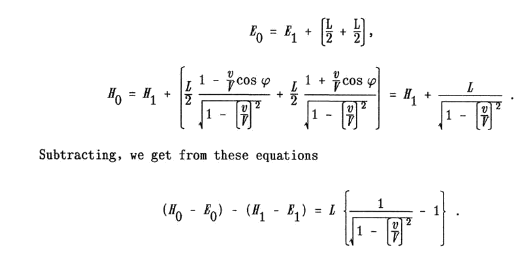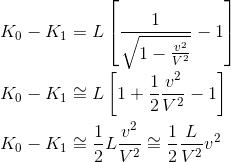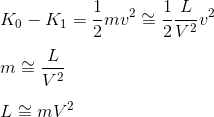Albert Einstein's paper Does the inertia of a body depend upon its energy content?[1] was published in the journal "Annalen der Physik" on November 21, 1905.
In this paper, Einstein revealed the relationship between energy and mass that would eventually lead to the famous mass-energy equivalence formula E=mc2 (energy equals mass times the velocity of light squared).
To be more exact, in this article, the equation E=mc2 is not originally written as a formula but as a sentence in German saying that "if a body releases the energy L in the form of radiation, its mass diminishes by L/V2". Einstein uses V to mean the speed of light in a vacuum and L to mean the energy lost by a body in the form of radiation.
Einstein makes the hypothesis of an object at rest in a referentiel (x,y,z) emitting plane waves of light of energy L/2 in a direction making an angle φ with the x-axis and an equal amount of enerrgy in the opposite direction.
He then calculates the level of energy of the body before and after the emission, respectively named E0 and E1 in the (x,y,z) referential and H0 and H1 in another inertial referential animated with an uniform parallel translation with velocity v (small v to be distinguished from capital V referring to the speed of light in the article) relative to (x,y,z) referential.

By posing the equivalence of Hx- Ex with the kinetic energy Kx of the body relative to the respective coordinate system, Einstein can then make an approximation at higher order and write:

So he finally gets

Which by replacing L by E for designing the energy and V by C (actual denomination of speed of light) gives the famous E = mc2 equation.
Finally, at the end of the article, the author mentions in a complete visonnary style the possible confirmation of this result by using the radium.
"It is not impossible that with bodies whose energy-content is variable to a high degree (e.g. with radium salts) the theory may be successfully put to the test."
Remark: One should grasp the total paradoxal meaning of this assertion, i.e. a mass emitting something which is massless (light) actually looses mass!
[1] "Ist die Trägheit eines Körpers von seinem Energieinhalt abhängig?"

